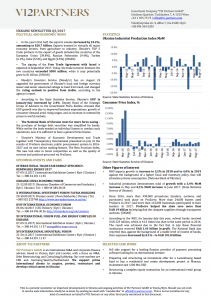Sunday evening Angela Merkel will have won parliament elections in Germany for a fourth consecutive time and start her fourth term as German Chancellor. It sounds paradox, but it is true, that she is longer in office than the World is using Apple iPhones and a generation of young Germans do only know her as the leader of Germany. Yet, in a world where twitter-man is hitting at rocket-man, and BoJo is not the name of a reality-show porn star, but of her Majesty’s foreign minister, the German „Mutti“ is a welcome deja-vu experience.
While narcissist and lunatic leaders are willing to steer our planet rapidly into chaos, her lack of ego and need to shine, and her sober approach to slow but steady problem and conflict solving have given her a unique political sex appeal, which will not only be honored by voters on Sunday but is recognized by political friends and enemies alike. Here are the main reasons for her seemingly un-ending success, which should become a case-study for the handbook of political leadership:
- Merkel was able to turn her Chancellor role into a Presidential role, putting her beyond the day-to-day quarrels of political fights and giving her a Mother-of-the-Nation image
- Merkel crushed the Social Democrats, by moving her party to the left, leaving no political wiggle room for her junior partner in the coalition government
- Merkel is constantly avoiding to enter into any controversial political discussions but lets her party soldiers and officers lead the fight. She only comes in to announce the results, thus never taking a direct hit
- Merkel’s cool-headed, logic-driven and stubborn approach to conflicts has helped her to ride undamaged through the European debt crisis as well as major geopolitical controversies, e.g. the Ukraine/Russia conflict
- Her party has succeeded to turn her sober character and appearance into an untouchable political weight. Her style and behavior is no more ridiculed but admired
- Believe it or not, but under the camouflage of her general appearance, Merkel is the biggest populist leader of Europe. She has an excellent feeling for the mood of the population, and will jump on anything that she feels would impact on her leadership or incense major discussions, not hesitating to throw major concerns, values and beliefs of her own party under the bus: as happened with the exit from nuclear energy after the Fukushima accident or the legalization of same-sex marriage or the Diesel scandal of the German auto industry
- Last, but not least, she has been able to use Trump, Brexit, and Erdogan to promote her style of Governance as a guarantee for stability and predictability in Germany and in the World – and there is nothing that Germans love more
However, starting her fourth and most probably the last term as the leader of the biggest European country and economy (even Germans might eventually grow tired of her after 16 years), there are four major topics that she will need to address actively to build a lasting legacy:
- Co-leading together with President Macron the European Union to the next development stage, and increasing integration after Brexit will require explaining to German voters why they will have to shoulder bigger financial contributions in European solidarity and why they will have to give up more financial sovereignty to a United Europe
- Reforming and rejuvenating the German economy, industry sectors, and infrastructure, which are currently lulled by the global success of their products and services. Drastic reforms and innovations of the car industry are needed to counter the rapid electrification and “Uberization” of the society and to avoid a coal industry deja-vu in this vital industry for Germany. Germany can and should afford to invest much more into building future options through education, IT and communication infrastructure, build-up of new industry segments. And finally, the society needs to be prepared for a rapid robotization of major production, supply, and service processes, which will lead to the disappearance of millions of jobs, while creating vast opportunities for others.
- Promoting a more balanced distribution of benefits and wealth in a society that has seen – as most of the Western societies did – a constant financial erosion of the middle class, the perception of taxation injustice, a burn-out frenzy, the evolution of multi-class health system with limited and decreasing access of the general population to first-class services, and will see the rapid disappearance of many low-skill jobs in the future.
- Beefing up the security and safety in a country that has welcomed more than a million new citizens in a wild process without any serious vetting. The hot refugee topic, that many domestic and foreign commentators have claimed to be her biggest political failure, will pose, absent of any ideology, a substantial security threat for Germany. To tackle the fears and concerns of the population and to counter all nationalist tendencies Merkel will have to increase spending and efforts in domestic security capabilities, including high-tech ex-post vetting, surveillance and profiling skills. All of this while transforming Germany into an open-minded, integrative society that can digest massive immigration and profit from an increase in diversity of cultures, languages, and skills.
In a world filled with war-mongering, arms and drugs proliferation, hate speeches, nationalist tendencies, extreme technological progress, and change, it would be great, if a nation, that has put the World into misery and ashes in two world wars, could act as an anchor for stability and peace. Merkel is the right person for this task. For Germany, Europe, and the World. Therefore good luck for Angela on Sunday and a lucky hand in ruling Germany for the coming four years. The World is in urgent need of stabilizing elements.
